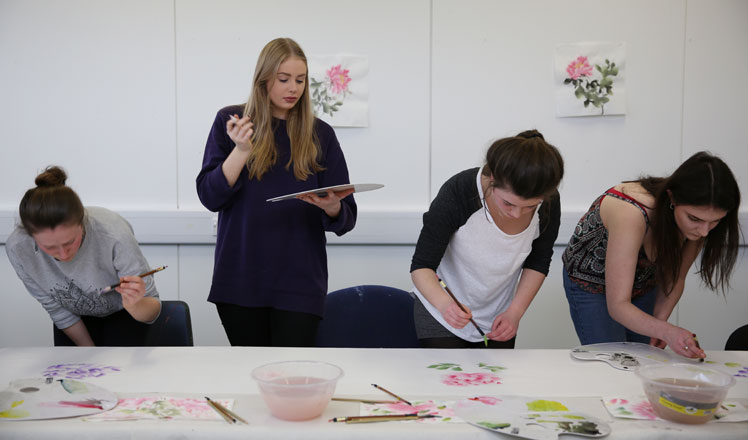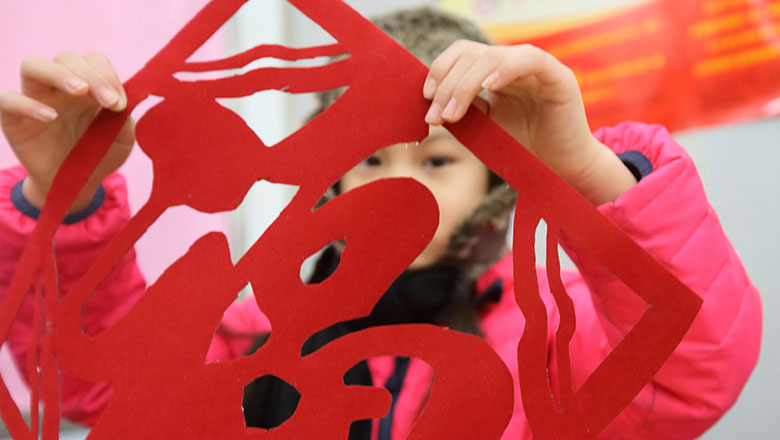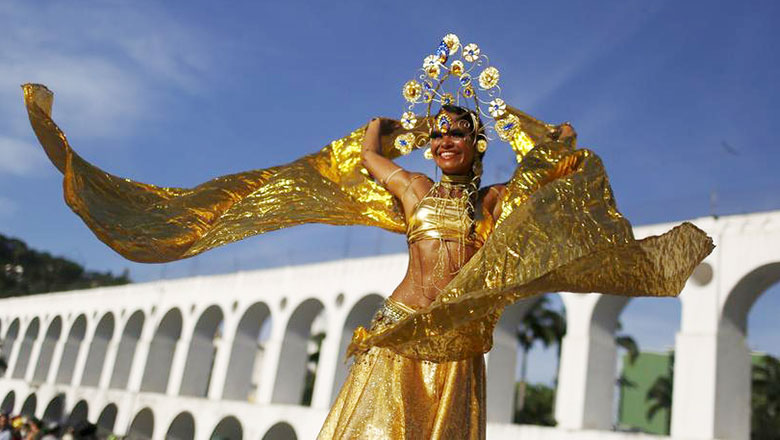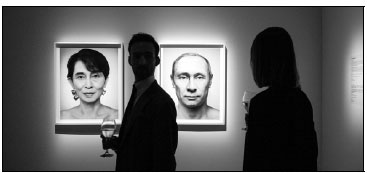Awards celebrate emerging Asian artists' take on issues
Updated: 2016-02-02 08:16
By Lin Qi(China Daily USA)
|
|||||||||
An artist can evolve at any stage of his life or career, as long as the diversity of his works grips people, says Honor Harger, a judge of the Prudential Eye Awards.
The annual awards, launched in Singapore two years ago, recognize emerging Asian artists with the potential of reaching a wider international audience.
This year, 15 artists, whose ages range from 27 to 44, caught the award committee's attention.
The panel of judges included Nigel Hurst, director of London-based Saatchi Gallery, the New Delhi-based art writer Rosalyn D'Mello and the Chinese contemporary artist Gu Wenda.
A ceremony to give the awards was held on Jan 19, and the artworks of winners and nominees are still on show at the city-state's ArtScience Museum for public viewing through March 27. Paintings, sculptures, installations, photos, videos and digital works are among several categories of exhibits.
"One of the striking aspects about this exhibition is that judges are looking for the best artists and the best art, subjectively defined. And one can see very clear linkages and connections among the works," says Harger, who is also the museum's executive director.
This year's chosen works show the artists' approach to social, economic and geopolitical issues and their attempts to convert personal experiences into universal feelings.
In When Need Moves the Earth, Thai artist Sutthirat Supparinya, who was nominated in the video and digital category, shows two power projects in her home country. Through her camera, she talks about the challenges to the environment posed by the Srinakarin dam and the Mae Moh lignite mine.
"The two constructions are located in a sensitive geological environment. I want to explore the impact of human and industrial activities on the (sites') natural surroundings," she says.
Huang Po-chih, an artist from Taipei, provides a microcosmic insight into industrialization in Taiwan and on the mainland. His installation Production Line explores agricultural recession and individuals within the structures of manufacturing and consumption.
He links his mother's story with the story of "Auntie Huang", another woman from southern China's Shenzhen city, where many cloth factories get their money from Taiwan. The two women share a similar background: Both went to cities from the countryside and ended up working on such production lines.
Huang put up a youthful photo of his mother at the exhibition venue and a photo of the other woman facing away from the visitors. Near them he has placed a stack of jeans made in the factories of Taipei and Shenzhen, with the words, "Sorry, I don't have an off today", projected on a nearby wall.
"In Taiwan, nobody cares about personal stories. People always focus on the economy, finance and business. That's why I try to look at the very small universe of individuals," says Huang, who was one of the award-winners.

Shanghai-based sculptor Yang Mushi also dwells on individuals. His installation-like sculpture on show, called Grind, displays several groups of objects in different formations - some look like piles of timber and some like sharpened pencils. The articles, placed on a large aluminum plate, took two years to make at a Shanghai factory. He then darkened their surfaces with lacquer.
He says the objects reflect the various states of his mind.
"I felt rather pessimistic and pained during the production process. I saw the materials becoming smaller inside the machines, and felt my own life fritter away."
He sees the process as a confrontation with his "other" side that easily blends into the social mainstream. He says the work helps him cool down, release his anxiety and maintain a distance from his surroundings.
Zhang Wei, a Beijing-based photo artist and awards nominee, says many young artists today "simply sell ideas or depend on impulse to create".
"But when one reaches middle age, an artist should rely on his experiences to go on."
linqi@chinadaily.com.cn
|
Chinese artist Zhang Wei's photos, titled Artificial Theater - The Leader.Lim Yaohui / Provided To China Daily |
(China Daily USA 02/02/2016 page8)
- Obama pledges $4.2b for computer science education
- Zika a new headache for Olympics prep
- Key players in 2016 US presidential race
- Negotiating political transition in Syria 'possible': Hollande
- At least three killed in light plane crashes in Australia
- BOJ further eases monetary policy, delays inflation target

 International friendship blossoms in peony painting
International friendship blossoms in peony painting
 Culture Insider: Little New Year
Culture Insider: Little New Year
 Global celebrations mark Chinese New Year
Global celebrations mark Chinese New Year
 Motorcycles ride home for Spring Festival reunion
Motorcycles ride home for Spring Festival reunion
 Sharing their wealth: Chinese celebrities and charity
Sharing their wealth: Chinese celebrities and charity
 The world in photos: Jan 25 - 31
The world in photos: Jan 25 - 31
 Year of the Monkey arriving in Washington
Year of the Monkey arriving in Washington
 Djokovic puts down Federer fightback to reach final
Djokovic puts down Federer fightback to reach final
Most Viewed
Editor's Picks

|

|

|

|

|

|
Today's Top News
National Art Museum showing 400 puppets in new exhibition
Finest Chinese porcelains expected to fetch over $28 million
Monkey portraits by Chinese ink painting masters
Beijing's movie fans in for new experience
Obama to deliver final State of the Union speech
Shooting rampage at US social services agency leaves 14 dead
Chinese bargain hunters are changing the retail game
Chinese president arrives in Turkey for G20 summit
US Weekly

|

|









